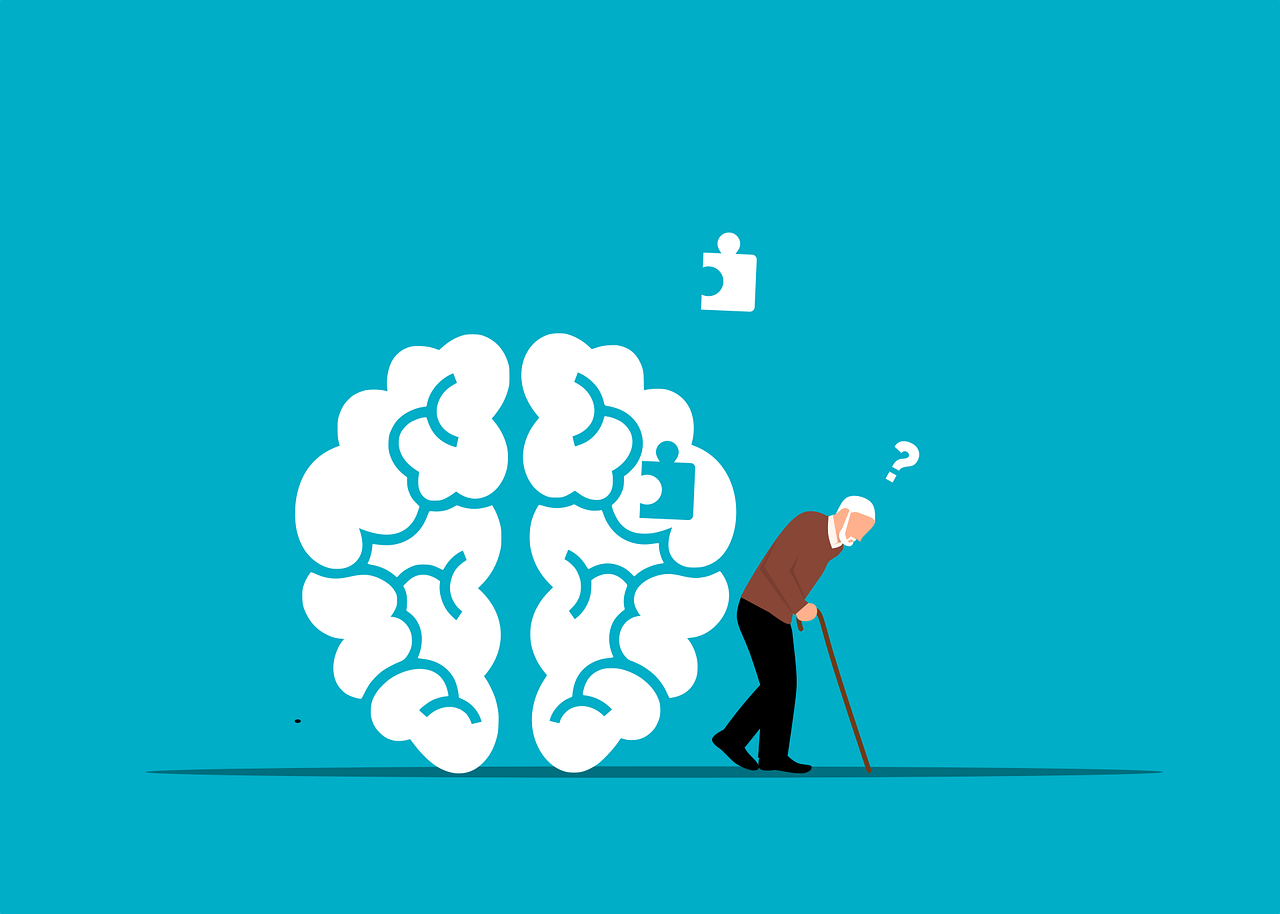Understanding Alzheimer’s disease—one of the most prevalent and life-altering forms of dementia—is crucial in today’s world. It not only transforms the lives of those who have it but also profoundly affects their families and caregivers. This complex condition, which gradually impairs memory and cognitive abilities, is a topic we must all familiarize ourselves with, considering its significance and impact. In shedding light on what Alzheimer’s disease is, its symptoms, causes, and how it progresses from early stages to more advanced ones, we aim to provide a comprehensive overview that enhances awareness and knowledge about this condition.
In this article, we will delve into the essence of Alzheimer’s disease, starting with a detailed explanation of what Alzheimer’s disease is and exploring the early signs and symptoms that can indicate its onset. Understanding these early indicators is crucial for early diagnosis and management. As we progress, we’ll discuss the journey from the initial symptoms to the advanced stages of Alzheimer’s disease, including the challenges faced and the potential treatments available. Additionally, we will explore the diagnosis process, highlighting how recognizing the causes of Alzheimer’s disease and its symptoms can lead to better outcomes. By the conclusion of this article, our aim is to equip you with a thorough understanding of Alzheimer’s disease, from its earliest indications to the most advanced stages of this condition, and the importance of timely intervention and care.
What is Alzheimer’s Disease?
Alzheimer’s disease is a chronic neurodegenerative disease that progressively destroys brain cells, leading to a deterioration in thinking ability and memory over time. It’s crucial to understand that Alzheimer’s disease is not a normal part of aging and is, unfortunately, irreversible .
Defining Alzheimer’s
Alzheimer’s disease stands out as the most common cause of dementia, accounting for 60-80% of all dementia diagnoses . This specific disease affects most areas of the brain, unlike other types of dementia which may impact specific regions more than others. The symptoms of Alzheimer’s disease predominantly include memory loss, both short-term and long-term, and difficulties with thinking, problem-solving, or language that are severe enough to reduce a person’s ability to perform everyday activities. Additionally, changes in mood or behavior are also notable symptoms .
Difference between Alzheimer’s and other forms of dementia
While Alzheimer’s disease and dementia are related, it’s important to distinguish between the two. Dementia serves as an umbrella term for a set of symptoms caused by various disorders affecting the brain, not a specific disease itself . Alzheimer’s disease, on the other hand, is a specific type of dementia characterized by progressive memory loss and cognitive decline .
Other types of dementia, such as frontotemporal dementia (FTD) and vascular dementia, show different primary symptoms and causes. For instance, FTD often leads to significant changes in personality and behavior in its early stages due to its primary effect on the frontal and temporal lobes of the brain, areas generally associated with personality and behavior . Conversely, vascular dementia arises from problems with blood circulation to the brain, often due to small strokes or other vascular issues, leading to cognitive impairments .
Moreover, Lewy body dementia includes symptoms that overlap with both Alzheimer’s disease and Parkinson’s disease, such as cognitive decline, visual hallucinations, and movement problems, due to abnormal protein deposits in the brain . Mixed dementia, a condition where an individual may have more than one type of dementia, such as Alzheimer’s disease combined with vascular dementia, is also common, particularly in older adults .
Understanding these distinctions is vital for diagnosing and treating each type of dementia appropriately, as each has its own set of challenges and treatment approaches.
Early Signs and Symptoms
Short-term Memory Loss
One of the most telling early signs of Alzheimer’s disease is short-term memory loss. This includes forgetting recent conversations or events, often leading to repetitive questions or statements . Many individuals may experience difficulties in recalling details about their day-to-day activities or may forget to attend appointments that were recently made . This type of memory loss is persistent and gradually worsens, affecting the ability to function at work or at home .
Difficulty Learning New Information
As Alzheimer’s disease progresses, affected individuals often find it increasingly difficult to absorb and retain new information. This could manifest as challenges in following a familiar recipe, keeping track of monthly bills, or remembering the rules of a favorite game . This impairment not only hinders the ability to learn new tasks but also affects the execution of routine tasks that were previously well-known to the individual .
Changes in Mood and Personality
Changes in mood and personality are common as Alzheimer’s disease takes hold. Individuals may exhibit depression, loss of interest in activities, social withdrawal, and mood swings . These changes are often precipitated by the frustration of coping with the other symptoms of the disease. Additionally, there can be noticeable shifts in behavior, such as increased anxiety, aggression, or even changes in sleeping habits . These mood and personality changes can be distressing for both the person with Alzheimer’s and their loved ones, as they mark a significant shift from the individual’s pre-disease personality and behavior.
In understanding these early signs and symptoms, it becomes crucial to seek medical advice and intervention to manage the progression of Alzheimer’s disease effectively. Recognizing these symptoms early can lead to timely diagnosis and treatment, potentially slowing the disease’s impact and improving the quality of life for those affected.
Progression to Advanced Stages
As we explore the progression to advanced stages of Alzheimer’s disease, it is crucial to recognize the escalating severity of symptoms that significantly impact daily life and overall well-being.
Loss of Long-term Memory
In the advanced stages, the deterioration of long-term memory becomes more pronounced. Individuals may struggle to recall significant life events or recognize close family members and friends. This loss extends beyond forgetting names or faces; it involves a profound disconnection from personal history, which can be distressing for both the individual and their loved ones. The brain’s widespread damage at this stage disrupts almost all cognitive functions, leading to severe memory impairments .
Inability to Perform Daily Tasks
As Alzheimer’s disease progresses into its later stages, the ability to perform daily tasks independently diminishes. Individuals at this stage may require assistance with the most basic activities such as eating, dressing, and personal hygiene. The loss of motor skills and coordination, coupled with cognitive decline, necessitates comprehensive daily care. This level of dependency marks a significant transition in the care requirements and often involves the consideration of long-term care facilities or intensive home care .
Behavioral and Psychological Symptoms
The progression to advanced stages is also characterized by notable changes in behavior and psychological health. Symptoms can include increased anxiety, aggression, sleep disturbances, and even hallucinations. These behavioral changes are often a response to the confusion and frustration associated with declining cognitive function. Caregivers may observe sudden mood swings and unpredictable behavior, which are indicative of the disease’s impact on the brain’s ability to regulate emotions and responses to external stimuli .
Understanding these stages is essential for providing appropriate care and support to individuals with Alzheimer’s disease, ensuring that they maintain the highest quality of life possible despite the progression of the disease.
Diagnosis of Alzheimer’s Disease
To diagnose Alzheimer’s disease, a comprehensive approach is adopted that includes medical history review, neurological assessments, and various diagnostic tests. This multifaceted diagnostic process helps in distinguishing Alzheimer’s from other forms of dementia and identifying other possible causes of symptoms.
Medical History and Physical Examination
We begin with a thorough review of the individual’s medical history and a physical examination. Doctors inquire about past and present medical problems, medications, family history of neurological diseases, and changes in behavior and personality . This step also involves checking vital signs like blood pressure and conducting a general physical assessment to rule out other health issues .
Neurological and Mental Status Exams
Next, neurological and mental status examinations are crucial. These include tests of memory, problem-solving abilities, attention, language skills, and other cognitive functions to assess the degree of impairment . A detailed mental status test can help pinpoint the specific type of cognitive decline associated with Alzheimer’s . Additionally, reflexes, muscle tone, coordination, and speech are evaluated to exclude other neurological conditions .
Brain Imaging and Other Tests
Advanced diagnostic tools play a significant role in the Alzheimer’s diagnostic process. Brain imaging techniques like MRI and CT scans are employed to observe the brain’s structure and check for tumors, strokes, or other abnormalities . PET scans may also be used to detect patterns of brain activity and the presence of Alzheimer’s-related proteins like beta-amyloid or tau . In some cases, cerebrospinal fluid analysis is conducted to measure these protein levels, providing further evidence supporting a diagnosis of Alzheimer’s .
Each of these diagnostic steps is critical for ensuring an accurate diagnosis of Alzheimer’s disease, enabling appropriate and timely intervention.
Conclusion
As we’ve journeyed through the complex landscape of Alzheimer’s disease, from its early signs to the advanced stages, a comprehensive understanding emerges, emphasizing the critical nature of early detection, diagnosis, and the challenging journey that lies ahead for patients and caregivers alike. This exploration has not only highlighted the biochemical and neurological facets of Alzheimer’s but also shed light on the emotional and practical sides of managing this disease. Through delving into the causes, symptoms, progression, and diagnosis, we aim to have fortified readers with knowledge that can foster early intervention and, consequently, a better quality of life for those affected.
The implications of this knowledge extend far beyond the individual, impacting families, healthcare systems, and society at large, underscoring the importance of awareness, research, and support in combating Alzheimer’s disease. While the current landscape offers no cure, understanding and managing Alzheimer’s through the lenses we’ve provided fosters hope—a hope for better management, improved treatments, and, ultimately, a future where Alzheimer’s no longer holds the power it currently wields over so many lives. As we advocate for continual research and innovation in this field, we also encourage a community approach to support those in the throes of this challenging disease, offering a beacon of light in what can often seem like an overwhelming darkness.
FAQ on Alzheimer’s Disease
1. What is Alzheimer’s Disease? Alzheimer’s disease is a chronic neurodegenerative disease that progressively destroys brain cells, leading to a deterioration in thinking ability and memory over time. It is the most common cause of dementia, accounting for 60-80% of all dementia diagnoses. Alzheimer’s is not a normal part of aging and is irreversible.
2. How does Alzheimer’s differ from other forms of dementia? While dementia is a general term for symptoms affecting memory, thinking, and social abilities severely enough to interfere with daily life, Alzheimer’s disease is a specific type of dementia. Other forms of dementia include frontotemporal dementia (FTD), vascular dementia, Lewy body dementia, and mixed dementia, each with distinct causes and symptoms.
3. What are the early signs and symptoms of Alzheimer’s disease?
- Short-term Memory Loss: Forgetting recent conversations or events, leading to repetitive questions or statements.
- Difficulty Learning New Information: Challenges in following familiar tasks or routines.
- Changes in Mood and Personality: Depression, social withdrawal, mood swings, increased anxiety, or aggression.




